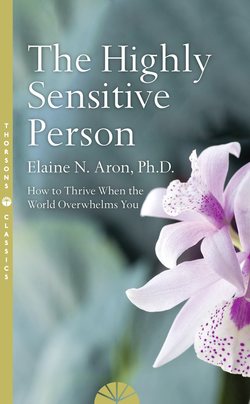Читать книгу The Highly Sensitive Person - Elaine N. Aron - Страница 18
Special But Deeply Misunderstood
ОглавлениеThe diagnosis was right as far as it went. HSPs do take in a lot—all the subtleties others miss. But what seems ordinary to others, like loud music or crowds, can be highly stimulating and thus stressful for HSPs.
Most people ignore sirens, glaring lights, strange odors, clutter and chaos. HSPs are disturbed by them.
Most people’s feet may be tired at the end of a day in a mall or a museum, but they’re ready for more when you suggest an evening party. HSPs need solitude after such a day. They feel jangled, overaroused.
Most people walk into a room and perhaps notice the furniture, the people—that’s about it. HSPs can be instantly aware, whether they wish to be or not, of the mood, the friendships and enmities, the freshness or staleness of the air, the personality of the one who arranged the flowers.
If you are an HSP, however, it is hard to grasp that you have some remarkable ability. How do you compare inner experiences? Not easily. Mostly you notice that you seem unable to tolerate as much as other people. You forget that you belong to a group that has often demonstrated great creativity, insight, passion, and caring—all highly valued by society.
We are a package deal, however. Our trait of sensitivity means we will also be cautious, inward, needing extra time alone. Because people without the trait (the majority) do not understand that, they see us as timid, shy, weak, or that greatest sin of all, unsociable. Fearing these labels, we try to be like others. But that leads to our becoming overaroused and distressed. Then that gets us labeled neurotic or crazy, first by others and then by ourselves.
